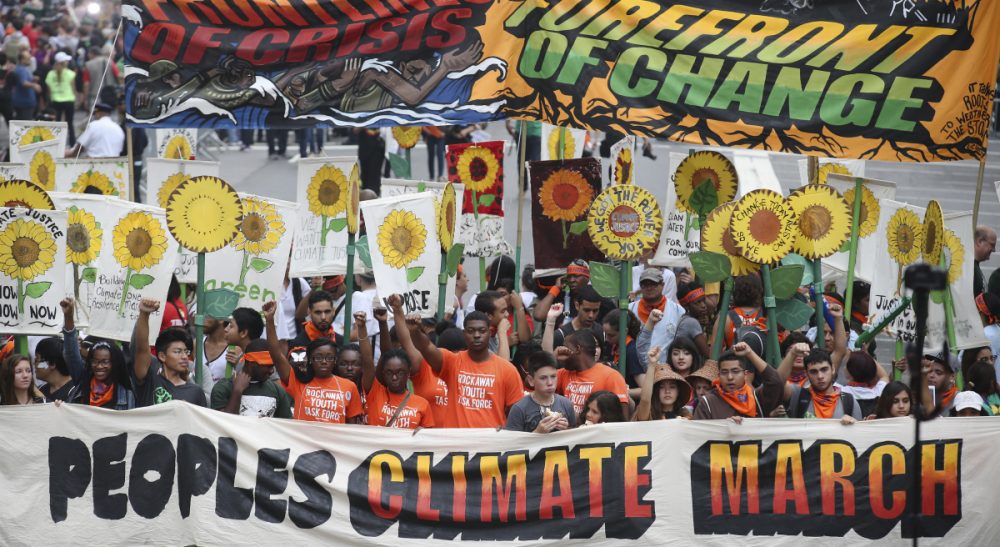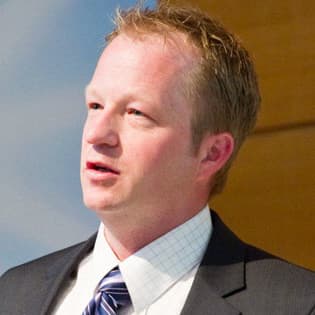Advertisement
Preaching To The Choir? Beyond The People's Climate March

Huge crowds recently descended on New York City to demand action on climate change. While it was an important event, I’m not sure what the march accomplished, beyond calling more attention to this critical issue. But there is a way to harness this kind of people power in a way that can have a real impact: Organize a string of high-profile marches and other activities right in the congressional districts of politicians who continue to deny undeniable science.
There can be a real impact if some of these same marchers would be willing to demonstrate in less friendly political territory to directly take on some powerful people who stand in the way of meaningful efforts to combat climate change.
True political change doesn’t necessarily happen by marching in front of world leaders and others who already largely agree with you. But there can be a real impact if some of these same marchers would be willing to demonstrate in less friendly political territory to directly take on some powerful people who stand in the way of meaningful efforts to combat climate change.
Take, for example, the U. S. House of Representatives Committee on Science, Space and Technology. Shockingly, some members of the panel bearing that prestigious title are among Washington’s biggest science deniers. Jon Stewart recently pilloried some of those congressmen on The Daily Show, including Larry Bucshon, Steve Stockman and Dana Rohrabacher.
While such calling out makes for great YouTube watching, it doesn’t necessarily change the political landscape. But imagine if some of those committee members or other politicians who willfully choose to ignore science were drummed out of office after a series of marches, protests and other activities called them out for their anti-science positions.
Real change will only come about when politicians and others see real consequences for their positions, or lack thereof, on climate change.
Real change will only come about when politicians and others see real consequences for their positions, or lack thereof, on climate change.
I am not suggesting that such local political action will be easy. Many of those who deny science come from districts where their constituents hold similar views. But by focusing attention on the fundamental lessons and importance of science, grass-roots actions against these recalcitrant members of Congress will also help to elevate the public conversation. Rather than just marching to oppose a particular candidate, these would be demonstrations in favor of science.
It’s fine to disagree about particular policies. In coal-producing states, for example, politicians of both parties cite potential economic hardship from proposals to reduce or shut down coal-burning plants. Such a debate about policy outcomes in response to climate change is appropriate. What is not an option is to challenge the very science that proves climate change.
Once you go down the road of ignoring science, the basis for an intelligent discussion about policy options is lost.
Related:
- On Point: Naomi Klein On ‘Capitalism Vs. The Climate’
- Cognoscenti: Climate Change. Challenges. Solutions.
- Cognoscenti: To Deny The Deniers, Champion The Cause Of Science.
